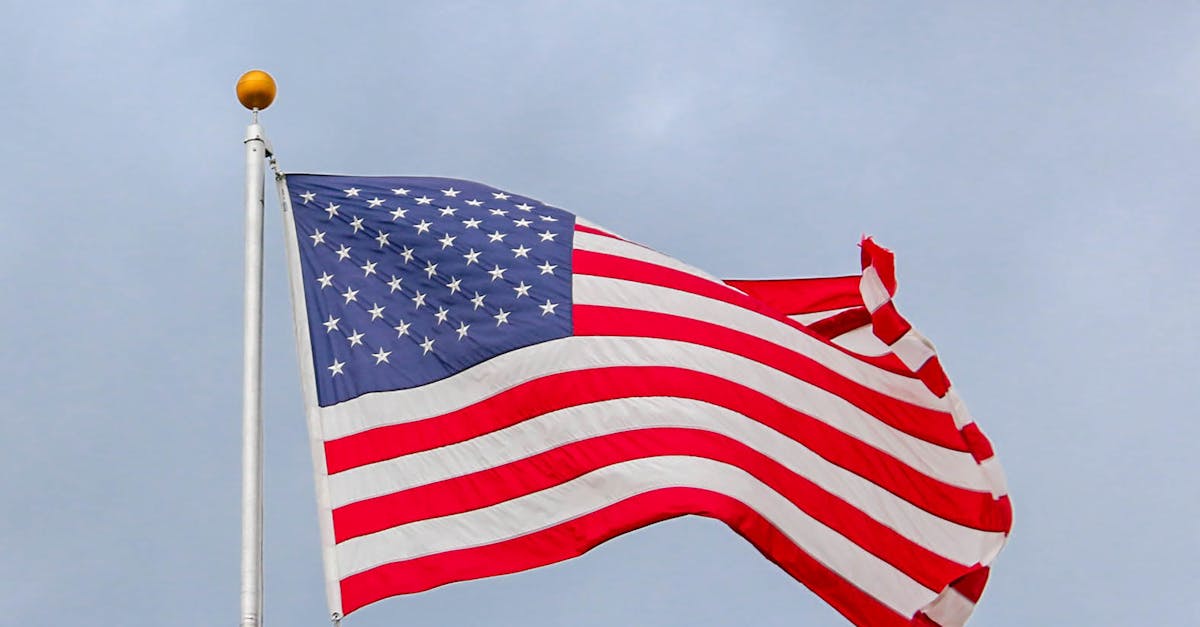
Parents play a crucial role in shaping the values and beliefs of their children, often influencing their perspectives on various societal issues. In the realm of education, parental beliefs can have a significant impact on what students are exposed to in the classroom. One contentious issue that often arises is the banning of books in school libraries, with parental concerns at the forefront of these debates. This article explores the influence of parents on book bans in Saint Johns and Flagler Counties, shedding light on the complexities of balancing parental rights with educational freedom.
**Parental Concerns and Book Bans**
Parents have long held the power to influence educational policies and decisions, including the selection of reading material for students. In recent years, the issue of book bans has garnered increased attention, with some parents advocating for the removal of certain books from school libraries due to content they find objectionable. These objections can stem from a variety of reasons, including concerns about explicit language, sexual content, violence, or themes that contradict their religious or moral beliefs.
In Saint Johns and Flagler Counties, parental activism has been a driving force behind efforts to challenge the inclusion of certain books in school curricula. These challenges often lead to contentious debates within school boards and communities, with proponents of book bans arguing that such materials are inappropriate for young readers. On the other hand, opponents of book bans advocate for the importance of academic freedom and the need for students to be exposed to a diverse range of perspectives and ideas.
**Local vs. County-Level Policies**
The issue of book bans is often complicated by the varying policies and procedures at the local and county levels. While some counties may have strict guidelines in place for reviewing and approving educational materials, others may afford more discretion to individual schools or districts. This lack of consistency can create challenges for educators and administrators seeking to navigate the delicate balance between parental concerns and academic freedom.
In Saint Johns and Flagler Counties, the process for addressing book challenges may vary depending on the specific school or district involved. While some schools may have established review committees tasked with evaluating challenged materials, others may rely on the discretion of school administrators or board members. This decentralization can lead to inconsistencies in how book bans are handled, further complicating efforts to address parental concerns while upholding academic standards.
**Navigating Parental Rights and Educational Freedom**
As the debate over book bans continues to unfold in Saint Johns and Flagler Counties, educators and policymakers must grapple with the complex interplay of parental rights and educational freedom. While parents have a legitimate interest in shaping their children’s educational experiences, it is critical to balance these interests with the need to promote critical thinking, intellectual exploration, and academic excellence in schools.
Ultimately, finding common ground on the issue of book bans requires open dialogue, mutual respect, and a commitment to upholding the principles of intellectual freedom and academic integrity. By engaging parents, educators, and community members in constructive conversations about the value of diverse perspectives and the importance of exposing students to challenging ideas, Saint Johns and Flagler Counties can work towards creating a more inclusive and intellectually vibrant educational environment for all.
In conclusion, the influence of parents on book bans in Saint Johns and Flagler Counties reflects the complexities of balancing individual beliefs with broader educational considerations. As communities strive to address the challenges posed by parental concerns, it is essential to foster a culture of open communication, collaboration, and mutual understanding. By upholding the principles of academic freedom and intellectual diversity, Saint Johns and Flagler Counties can continue to provide students with a rich educational experience that prepares them to navigate an increasingly complex and diverse world.








Wow, this is such an interesting topic! Parents definitely have a big say in what their kids are learnin’ and readin’ in school. I think it’s important
Wow, because nothing says academic excellence like banning books, right? I mean, who needs diverse perspectives and challenging ideas when you can just shelter students from anything remotely controversial or thought-provoking? Let’s just wrap our kids in bubble wrap and shield them from the real world. Genius
Wowza, talk about a hot topic! 📚 It’s cray-cray how much power parents have in deciding
Well, of course parents should decide what kids read in school. Who needs academic freedom when you can just shield your precious little snowflakes from anything remotely challenging or thought-provoking? Let’s just ban all books and wrap our kids in bubble wrap while we’re at
Hey y’all, I reckon it’s important for parents to have a say in what their young’uns are readin’ in
OMG, parents need to chillax a bit with all this book banning drama! Like, I get it, you wanna protect your kids and all, but also, they need to learn about different stuff, you know? It’s like, balance, people! Can’t just shield them from everything. Education
I think parents have a big say in what their kids should read and learn in school, but we also need to think bout giving students a chance to explore different ideas. It’s important to have a balance! I hope they can figure out how to make everyone happy, so the kids can have a good education with lots of different perspectives. It’s all about finding that middle ground, right? Very interesting topic
Parents sure do have a big say in what their kids get to learn and read in the schools, hey. It’s like they can just be like, “Nah, my kid ain’t reading that book,” and
omg lies parents should let kids read what they want it’s so important to uhm, like, expanse ur mind and stuff. School should be all about learnin’ and growin’ not about suppressin’ ideas or whatever. let the kids read what they want,
well i think it’s really important for parents to be involved in what their kids are reading in school and stuff. like, books can have a big impact on how kids see the world, so parents should have a say. but at the same time, it
Parents r so important in shaping their kids’ beliefs nd stuff. I think it’s cool how they can have a say in what books r in school libraries. But sum parents want to ban books, which can b tough. I think we shud all talk bout
Ugh, parents always tryna control everything their kids do. Like let them read what they wanna read, you know? If they don’t like a book, just don’t let your kid read it, simple as that! Why you gotta go banning books for everyone else? Let the kids learn about different stuff, geez. Academic freedom is important, man. We gotta expose students to all
Wowza, parents sure do got a lot of power when
Omg, parents are soooo important for what kids read in school! It’s like they have all the power, you know? But then there’s this whole thing about banning books, and some parents are like, “No way, that book is too much!” and other parents are like, “Let the kids read everything!” It’s like a big fight, but I guess everyone just wants what’s best
Parents have the right to say what their kids read, but it’s also important for schools to have diverse perspectives in their libraries. Sometimes book bans happen because of violence or language, but other times it’s because of differing beliefs. Finding a balance between parents’ rights and academic freedom is key. In some places, the rules
Oh man, this makes me so sad to think about how parents can stop us from reading certain books in school. Like, I get it,
hey i think parents should have a say in what their kids are reading but also we need to make sure students are exposed to different ideas and perspectives so they can learn and grow and stuff. it’s good to have discussions and work together to find the best solutions that balance everyone’s needs. also, that photo looks cool!
Wow, this is such an interesting post! Parents hav a big impact on what
Parents shud be involved in their childrens’ education but it can be hard when they wanna ban books from schools. We gotta find a balance between parental concerns and giving students the chance to learn bout different stuff. It’s important for students to be exposed to different ideas and perspectives. Educators and parents need to talk and find ways to make sure kids get a good education without restricting access to important materials.
Parental thoughts on book bans is a touchy subject. Folks be all like “we gotta protect our kids from inappropriate stuff in books” but then others be like “nah, we gotta expose ’em to different ideas and viewpoints.” It’s
Yo, why parents gotta be so up in arms about banning books in school
Wow, parents banning books in schools, what a groundbreaking concept! Because clearly, shielding our children from every potential discomfort or differing viewpoint is the best way to prepare them for the real world. Let’s just wrap them in bubble wrap and never expose them to anything remotely challenging or thought-provoking. Who needs critical thinking skills when we have overprotective parents to dictate what information can and
I juts wanna say that parents shudn’t ban books cuz it’s impotant for kids to read diffrent stuf and get difrent pespectives. Books can open
Parents have big say in wat kids are learnin in skool and wat books they can read. Sum parents don’t like certain books cuz maybe has bad werds or
Parents play big part in kids’ values + views & even what a kid reads at school. some parents don’t like certain books in schools + complain + try to get them banned cuz
Oh wow, here we go again with parents wanting to control everything their kids are exposed to. Because clearly, banning books is the best way to
“Ha! Imagine all the parents trying to ban books just because they don’t like a little swear word or
OMG, like, parents totally have a big say in what books kids read in school, right? But, like, shouldn’t kids be, like, exposed to different ideas and stuff? I mean, come on, we gotta, like, embrace diversity and all that jazz. It’s important to, like, balance parental concerns with giving students the chance to, you know, think for themselves and
Wow, these parents in Saint Johns and Flagler Counties are really cracking down on those books, huh? I mean, what’s next, banning Dr. Seuss for being too rhymey? But hey, gotta respect their passion for what they believe in, even if it means missing out on some good reads. Let
I think the blog post raises a really important point about the influence of parents on book bans in schools. It’s true that parents have a right to
parent is important in kids life. thay shap values n belifs. book bans parents can do this
Ugh, parents always causing drama with their book banning crusades. Like, come on, let kids read and learn. We need diverse perspectives and challenging ideas in schools, not censorship! It’s like they’re stuck in the Stone Age or something. Let teachers teach and students grow,
OMG, parents need to chill with all the book banning drama! Like, I get it, you want to protect your kids and stuff, but let them read and learn, okay?
Parents have big influence on what kids read in school so book bans are a hot topic. Some parents want to ban books ’cause they don’t like the content. In Saint Johns and Flagler Counties, parents are fighting to keep certain books out of schools. But some people say no to book bans ’cause students should learn different stuff. The rules about book bans are different in each place